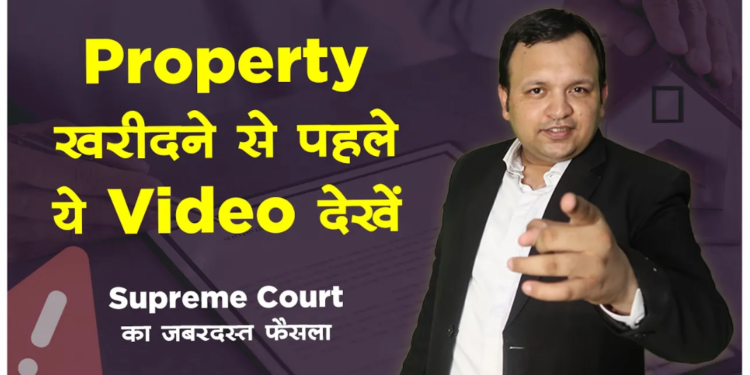Landmark Judgement of the Supreme Court in India regarding property, wills, and Power of Attorney
Ghanshyam vs Yogendra Rathi on 2 June, 2023
The Supreme Court of India has delivered a landmark judgement on the scope and validity of power of attorney (POA) documents. The Court held that a POA cannot be used to transfer immovable property without the principal’s express consent and execution of the necessary documents. This judgement has important implications for both principals and POA holders.
To learn more about the topic, read the blog till the end, and if there lies any more doubt, feel free to reach out to us at; https://thelegalshots.com/legal-opinion/
The Supreme Court of India has made several landmark judgments related to property, wills, and power of attorney. These judgments have had a significant impact on property rights and legal procedures in the country. One such landmark judgement is
On June 6, 2023, Ghanshyam v. Yogendra Rathi case on the scope and validity of power of attorney (POA) documents. The Court held that a POA or a Will cannot be recognized as title documents or documents conferring any right in any immovable property. The Court also observed that the non-execution of any document by the power of attorney holder consequent to the POA renders the said POA useless. This means that even if a power of attorney authorizes the POA holder to sell or transfer immovable property, the POA holder cannot do so without the principal’s express consent and execution of the necessary documents. This judgement is significant because it clarifies the legal status of power of attorney documents and their role in the transfer of immovable property. It also puts an end to the common practice of people buying and selling immovable property on the basis of POA documents alone.
What is Sale Agreement
A sale agreement, also known as a purchase agreement or sales contract, is a legally binding document that outlines the terms and conditions of a property sale between a buyer and a seller. The sale agreement typically includes details such as the names and contact information of the buyer and seller, the description of the property being sold, the purchase price, payment terms, any contingencies or conditions, and the closing date. It’s important to have a well-drafted sale agreement to protect the rights and interests of both parties involved in the transaction. It’s recommended to consult with a legal expert or a real estate professional to ensure that the sale agreement is comprehensive and legally enforceable.
What is Will Deed
A will deed, also known as a last will and testament, is a legal document that allows a person to express their wishes regarding the distribution of their assets and the care of any dependents after their death. In a will deed, you can specify who will inherit your property, money, or other assets, as well as appoint guardians for your children or dependents. It’s important to have a properly executed will deed to ensure that your wishes are carried out and to avoid any potential disputes or complications after your passing. To create a will deed, it’s recommended to consult with a lawyer who specializes in estate planning. They can help you understand the legal requirements and guide you through the process to ensure that your will deed is valid and legally binding.
What is Power of Attorney
Power of attorney is a legal document that grants someone else the authority to act on your behalf in legal or financial matters. It allows the person you appoint, known as the attorney-in-fact or agent, to make decisions and take actions on your behalf when you are unable to do so yourself. The power of attorney can be specific to certain tasks or it can be more general, giving the agent broader authority. It’s important to choose someone you trust as your attorney-in-fact, as they will have the power to make important decisions on your behalf.
Implications of the Supreme Court judgement
The Supreme Court judgement has several implications for both principals and POA holders. Principles should be more careful when executing power of attorney documents and should ensure that they only grant the POA holder the specific powers that they need. Principals should also monitor the POA holder’s activities closely and revoke the POA if they have any concerns.
POA holders should be aware that they cannot rely on POA documents alone to transfer immovable property. POA holders must obtain the principal’s express consent and execution of the necessary documents before transferring any immovable property.
Conclusion
The ruling emphasizes that a POA cannot be used to transfer immovable property without the principal’s express consent and execution of necessary documents, putting an end to the common practice of relying solely on POA documents for property transactions. This judgment underscores the importance of careful execution of POA documents by principals and highlights the need for vigilance and adherence to legal procedures by POA holders. Moving forward, it is crucial for both principals and POA holders to be mindful of the implications of this judgment and to ensure compliance with legal requirements in property transactions.
To understand more such complex law in simple ways, stay connected with www.thelegalshots.com .
If doubts still persist, contact our Legal Experts at https://thelegalshots.com/legal-opinion/




